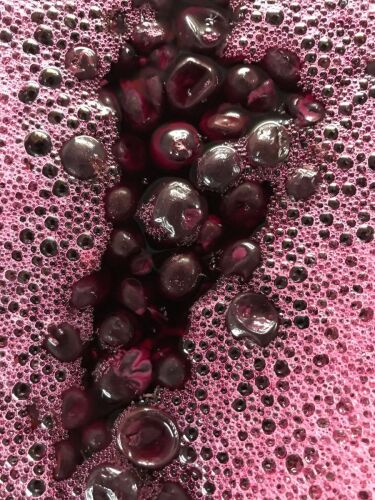What Is Natural Wine Part 1. The Basics

What is natural wine? The question we get asked most often and is one that requires much more than a soundbite, one-line definition. Natural wine is a tricky term to define, there is no legal criteria that makes a wine ‘natural’, and there is no universally agreed definition. There are a number of different wine certifications that are available to winemakers today, some setting stricter standards of ‘naturalness’ than others, though none of these certifications have the final word. Instead of certifications and legal definitions, we think of natural wine as a concept, a philosophy, an ideal. Understanding it requires asking questions about where the wine in your glass came from and how it was made. Natural wine is rooted in tradition and underpinned by a deep respect for land and nature. It starts in the vineyard and goes right through to work in the cellar.
In its purest form, natural wine is pure fermented grape juice, with nothing added and nothing taken away. It is not manipulated, and it is not made to a recipe. One could say that it is the opposite of conventional wine, where grapes have a pre-determined path from the moment the vines start to bud. Natural wine harnesses the natural properties of the grape and the land, it lets the nature lead the way and reflects a snapshot of time and place.
The natural winemaker works without the aid of chemicals, flavour manipulations, synthetic yeasts, herbicides or pesticides. They must use their instincts to guide the wine from vine to bottle. It can be unpredictable; the winemaker is at the mercy of the weather and growing conditions, they must adapt to the path nature sets. With no two growing seasons the same, the challenges that winemakers face change, as does the resulting wine in our glass. While nature paves the way, the winemaker works as sidekick, making a multitude of decisions and watching closely as grapes grow and the wine evolves. For natural wine, interventions from the winemaker are considered and sensitive. The resulting wines pure and alive, they reflect a time and place that could be from nowhere else in the world.
Some wines are more natural than others, we often think of the concept as a sliding scale and ask many questions about process and origins. Questions such as: what type of interventions did the winemaker choose during their process? How was the land worked? Were chemicals used on the farm or in the cellar? Were native yeasts used during fermentation? Did the wine undergo any transformative process? Was sulphur added to the wine, if so, how much? Was the wine filtered or fined? All these questions play a part in determining how natural the final wine is. Ideally what ends up in your glass will be made from grapes and grapes alone, from land that has not been chemically treated. It will taste the way nature decided it should taste, with nothing added and nothing taken away.
Natural wine can be wild and unexpected, it can also be delicate and nuanced. It can be hazy and textured or it can be clean and crisp. There is no one answer to ‘what makes a wine natural?’ or ‘what does natural wine taste like?’, understanding the concept and what ends up in your glass requires asking questions about where, how and who made the wine. It all starts in the vineyard…